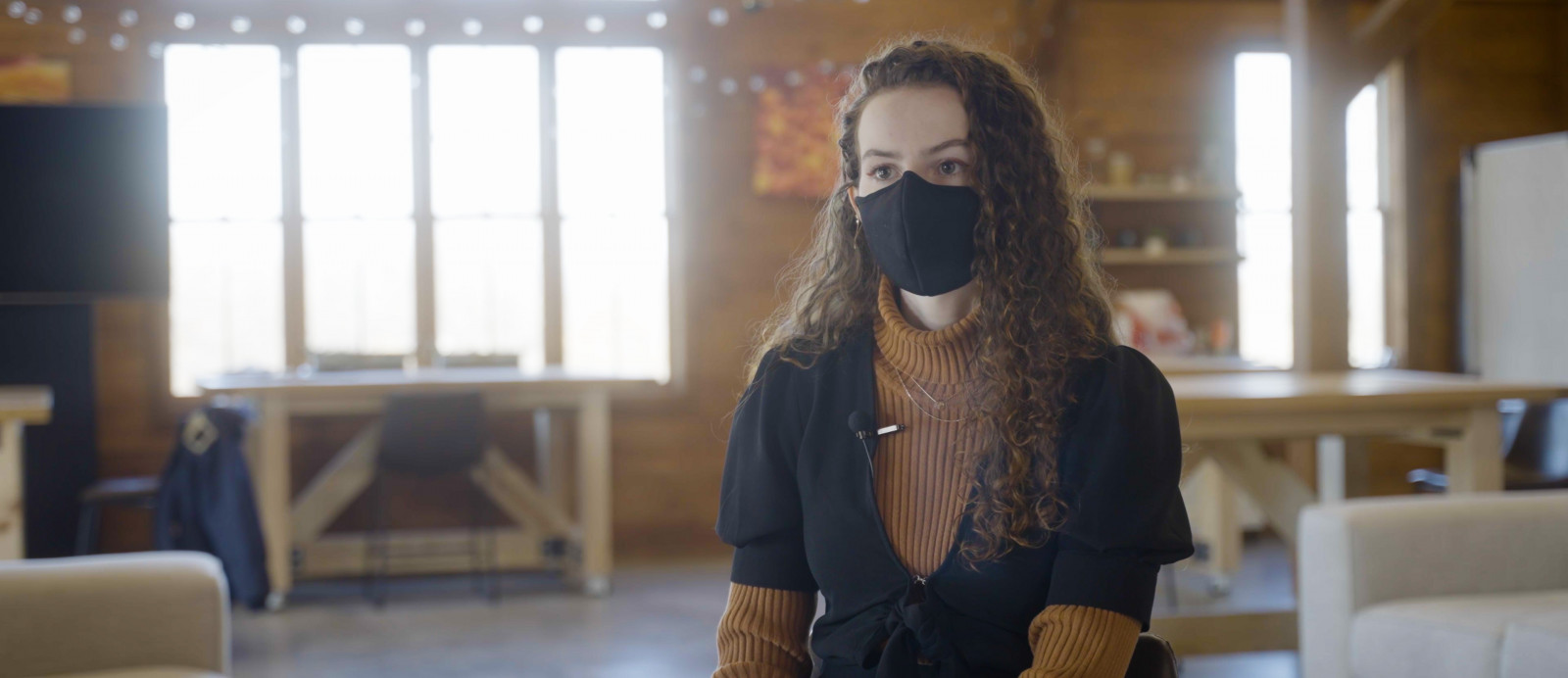Sustainability Pathway
Are you concerned about climate change or the sixth extinction? Do you want to ensure environmental justice and access to clean water? Maybe you’d like to research renewable energy; help businesses or organizations reduce their environmental footprint; design innovative approaches to resource and waste management; or educate kids and communities about the environment.
If you want to make the world a better place for all living things, DePauw’s Sustainability Pathway is for you.
When you embark
When you embark on the Sustainability Pathway, you’ll combine environmental and sustainability-themed classes with applied, hands-on activities on and off campus to learn how society’s unsustainable behaviors degrade the environment and affect human health. You’ll investigate how these problems can be addressed. You’ll also learn how, from the historical roots of racism, sexism and other oppressive systems to the modern reality of income and health disparities, social injustices inhibit sustainability and prosperity.
Additionally, you will be able to use DePauw’s campus as a case study in systems and change by connecting with real issues and problems facing our energy and resource management. If you have a passion for nature, community service, equity or innovative thinking, this pathway will help you become a researcher or change-makers for sustainability.
How does a DePauw education relate?
Sustainability is broadly understood to be that which “meets the needs of the present without compromising the ability of future generation to meet their needs” (Brundtland Commission, 1987). It comprises three intersecting systems: the environment, the economy and society. Different disciplines inform our understanding of the challenges to sustainability.
DePauw’s liberal arts curriculum enables innovation and encourages students to challenge preconceived notions, and both approaches are critical to the problem-solving that sustainability requires. Similarly, the university’s requirement that each student takes a course on global learning and a course called Privilege, Power and Diversity is especially important to sustainability because social justice is a foundational principle. Because of the complexity of the field, strong skills in quantitative reasoning, speaking, listening and writing are needed to comprehend and communicate information from a wide variety of fields.
What DePauw courses could I explore?
-
ARTS 273 - Sculpture and Sustainability
Uses art to explore sustainability and ways to make art more sustainable.
-
ECON 245 - Environmental and Natural Resource Economics
Discusses resource management and scarcity.
-
ENG 191 - Reading Literature: Science, Nature, and Technology
Uses literature to explore sustainability ideas, including the relationship between people and nature.
-
POLS 265 - Introduction to Environmental Policy
Examines the evolution of environmental policy in the United States, and how it has developed to address a range of environmental problems such as air and water pollution, energy, and disaster relief.
-
POLS 290 - Politics of Climate Change
Discusses the challenges posed by climate change and uses multiple political lenses to study climate change.
-
UNIV 290 - Topics: Introduction to Urban Studies
Considers how urban settings grapple with the social and environmental aspects of sustainability.
-
WGSS 290 - Topics: Gender and Climate Justice
Discusses climate and sustainability through lenses that take gender and its intersections with race, class, ability, species, and sexuality seriously.
-
WLIT 215B - Topics: Nature and Spirit: Ecology in World Literature
Introduces ideas about the natural world from a variety of global cultures.
-
BIO 102 - Evolution, Organisms, and Ecology
Discusses biologic and environmental systems and interactions that are a necessary part of sustainability.
-
GEOS 110 - Earth and the Environment
Introduces and describes fundamental geologic processes critical to environmental science.
-
GEOS 117 - Weather, Climate, and Climate Change
Explores the natural processes of weather and climate through geologic time as well as anthropogenic climate change.
-
GEOS 125 - Introduction to Environmental Science
Topics include energy, ecosystems, human populations, natural resources, and the impact of human activity on the natural environment.
-
GEOS 197A - Campus Sustainability 101
-
GEOS 230 - Environmental Geology
Examines the influences that geologic materials and processes have on human society and how this knowledge can help solve environmental problems.
HOW HAVE ALUMNI ENGAGED IN CAREERS IN THIS AREA?
Wallace J. “Jay” Nichols ’89, founder, Live Blue Foundation
Nichols, a marine biologist, was a biology and Spanish double major at DePauw. He is responsible for pioneering research on the migration of sea turtles.
He is the author of “Blue Mind: The Surprising Science That Shows How Being Near, In, On, or Under Water Can Make You Happier, Healthier, More Connected, and Better at What You Do.” He also has authored and co-authored more than 50 scientific papers and reports, and his work has been featured in numerous magazines, including National Geographic and Scientific American.
In 2019, Nichols received the Academy of Underwater Arts and Sciences NOGI Award for his work to support the environment.
What careers have other pathway alumni engaged in?
- Paul Cummings ’01, director of development - Indiana, Greenex Solar
- Missy Orr ’09, program assistant, Planet Blue Ambassadors
- Taylor Cantril ’11, Thailand Country director, Loop Abroad
- Sarah White ’16, account executive, Mapistry
What other relevant experiences are available?
- Sustainability Leadership Program
- Ullem Fellow Summer Research
What other offices and programs might I connect to?
- Environmental Fellows Program
- Sustainability Committee
- Office of Sustainability
Who else can tell me more and answer my questions?
- Jeane Pope
professor
geosciences
faculty sustainability coordinator
